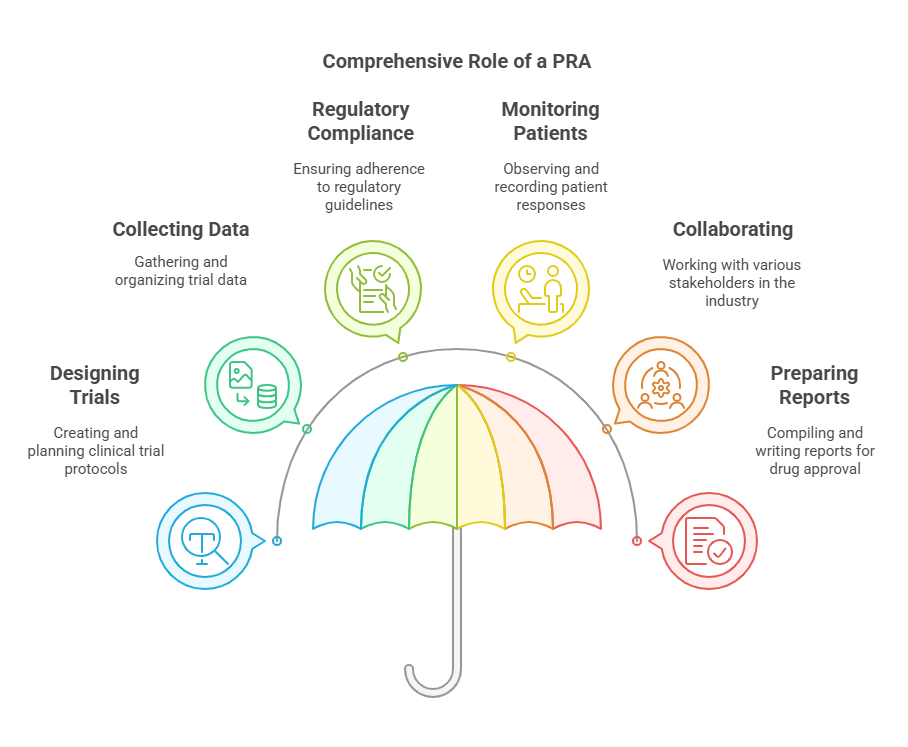The Smart Way to Become a Pharmaceutical Research Associate
So, you want to be a Pharmaceutical Research Associate? Well, buckle up, because you're about to enter a world where white coats, cutting-edge experiments, and life-changing discoveries rule the day! Imagine being the mastermind behind the next blockbuster drug or a medical breakthrough that saves millions of lives. Sounds pretty cool, right? But how do you get there? Is there a magic formula? A secret handshake? Nope. But there is a smart way to make it happen. Let’s dive in!
What is a Pharmaceutical Research Associate?
A Pharmaceutical Research Associate (PRA) is a vital professional in the field of clinical research and drug development. Their primary role is to oversee and support clinical trials, ensuring that new drugs, medical treatments, and therapies are tested for safety, efficacy, and compliance with regulatory guidelines before they become publicly available.
PRAs work closely with scientists, doctors, regulatory bodies, and contract research organizations (CROs) to gather, analyze, and report clinical trial data. Their work directly influences drug approvals and medical innovations that improve healthcare worldwide.
Key Responsibilities of a PRA:
Designing and overseeing clinical trials
Collecting and analyzing trial data
Ensuring regulatory compliance (FDA, ICH-GCP, and other guidelines)
Monitoring patients' responses to investigational drugs
Collaborating with pharmaceutical companies, hospitals, and regulatory agencies
Preparing reports and documentation for drug approval processes
Since the pharmaceutical industry is highly regulated, PRAs must ensure that every aspect of the clinical trial is conducted ethically and scientifically.
Why Should You Consider This Career?
The pharmaceutical and healthcare industries are booming, and Pharmaceutical Research Associates are in high demand. If you have a passion for science, medicine, and data-driven decision-making, this career can be highly rewarding.
Top Reasons to Become a PRA:
✅ Job Security & Growth: The pharmaceutical industry is recession-proof, offering long-term stability and excellent job prospects.
✅ Competitive Salaries: Entry-level PRAs can earn between $65,000 and $120,000 per year, depending on experience and location.
✅ Contribution to Medical Breakthroughs: You play a key role in developing life-saving drugs and treatments.
✅ Flexible Work Options: Many PRAs work remotely or have hybrid work models.
✅ Global Opportunities: Clinical research is a worldwide field, and PRAs can work in pharmaceutical companies, hospitals, biotech firms, and CROs across different countries.
If you’re looking for a meaningful career with growth potential, this might be the perfect fit for you!
How to Become a Pharmaceutical Research Associate?
Becoming a PRA requires a mix of education, training, and hands-on experience. Here’s a step-by-step guide to starting your career in this field:
1. Get the Right Education
To qualify as a PRA, you typically need a bachelor’s degree in a life sciences or healthcare-related field, such as:
Biotechnology
Pharmacology
Biochemistry
Microbiology
Nursing
Pharmacy
Medicine
Some professionals advance their careers faster by obtaining a master’s degree in clinical research, regulatory affairs, or a related field.
📌 Pro Tip: While a degree is important, certifications in clinical research can make you stand out in a competitive job market.
2. Enroll in Clinical Research Programs
Since pharmaceutical research is a highly specialized field, completing additional training in clinical research can give you a significant edge. Many online programs offer flexible learning options that allow you to earn certifications at your own pace.
Top Certifications for PRAs:
📌 Clinical Research Associate (CRA) Certification – A must-have for professionals looking to work in clinical trials.
📌 Pharmacovigilance Certification – Ideal for those interested in drug safety and monitoring adverse reactions.
📌 Clinical Trials Assistant Training – Perfect for entry-level professionals wanting to get hands-on experience in managing trials.
📌 Advanced Clinical Research Project Manager Certification – Recommended for experienced PRAs looking to lead projects and teams.
📌 Where to Get Certified? Organizations like CCRPS (Certified Clinical Research Professional Society) offer accredited, industry-recognized courses designed by real-world clinical research experts.
3. Gain Hands-On Experience
While education and certifications help you understand clinical research, practical experience is what will get you hired.
Ways to Gain Experience as a PRA:
✅ Internships – Many pharmaceutical companies and CROs offer internships for recent graduates.
✅ Volunteer for Clinical Trials – Participating in or assisting in trials can provide firsthand experience in research settings.
✅ Entry-Level Jobs – Start as a Clinical Trial Assistant (CTA) or Clinical Research Coordinator (CRC) to get industry experience.
✅ Network with Professionals – Join LinkedIn groups, attend research conferences, and connect with professionals in the field.
The more hands-on experience you gain, the better your chances of landing a high-paying job in pharmaceutical research.
4. Stay Updated with Industry Trends
The pharmaceutical industry is constantly evolving, and staying ahead of the curve is crucial for career growth.
How to Keep Up with Industry Trends?
📚 Subscribe to Clinical Research Journals: Stay updated with research published in The New England Journal of Medicine, The Lancet, and ClinicalTrials.gov.
📢 Attend Webinars & Conferences: Events hosted by FDA, EMA, DIA, and ACRP provide valuable insights.
🔬 Join Professional Associations: Organizations like ACRP (Association of Clinical Research Professionals) and SOCRA (Society of Clinical Research Associates) offer training, networking, and job opportunities.
Being proactive about learning new regulations, technologies, and best practices will help you stay competitive in the job market.
Explore Courses for Clinical Research Career
Courses Available:
Conclusion
If you're serious about becoming a Pharmaceutical Research Associate, getting the right training and certification is crucial. CCRPS (Certified Clinical Research Professional Society) offers industry-leading courses.
Frequently Asked Questions (FAQs)
-
It depends on your educational background. If you have a science degree, it can take 2-3 years with certification and experience. If you’re starting fresh, expect 4-6 years.
-
Absolutely! It’s a high-paying, in-demand, and rewarding career that allows you to contribute to global health advancements.
-
Yes, many PRAs travel to monitor clinical trial sites, though remote roles are increasing in the industry.
-
Salaries vary by location and experience, but the average salary ranges from $65,000 to $120,000 per year.
-
Yes! Taking online certifications and gaining internship experience can help you land an entry-level role.
-
Strong analytical, communication, problem-solving, and attention-to-detail skills are crucial for success.














